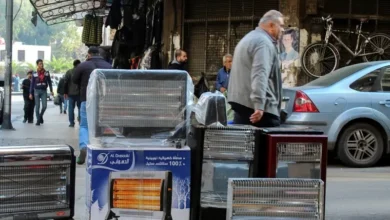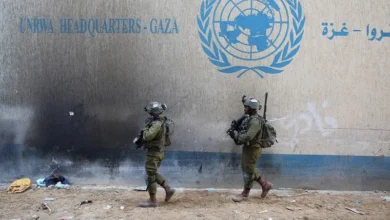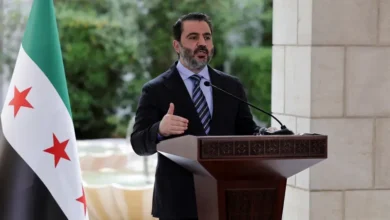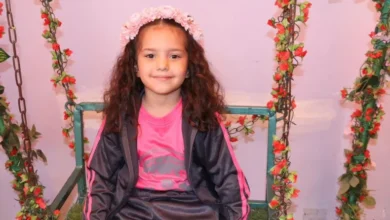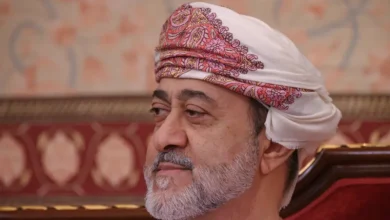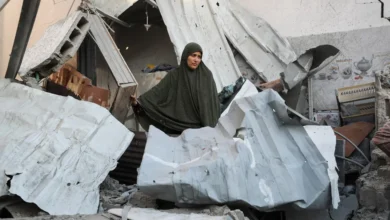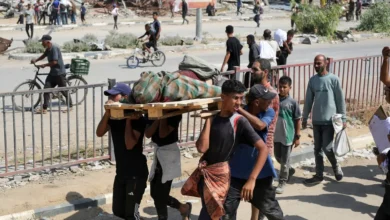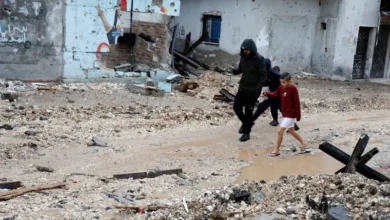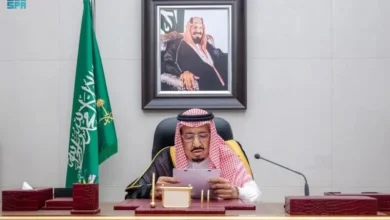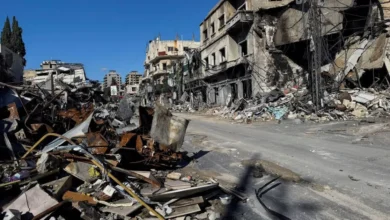Israel intensifies Gaza strikes, Hamas fires rockets amid truce talks
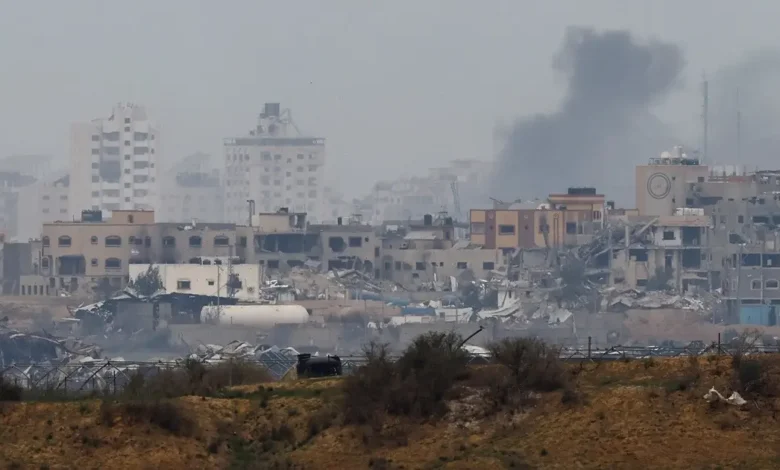
Fighting in the Gaza Strip escalated on Thursday with some of the most intense Israeli bombardment of the war and Hamas demonstrated its ability to rocket Tel Aviv, even as the foes engaged in the most serious talks for weeks on a new truce.
Israeli bombing was at its most intense over northern Gaza, where orange flashes of explosions could be seen from across the fence in Israel in the morning. Later, Israeli planes roared over central and southern areas, dropping bombs that sent up plumes of smoke, residents said.
In Israel’s commercial capital Tel Aviv, sirens wailed and rockets exploded overhead, intercepted by Israeli defenses. Shrapnel fell on a school but the children were in shelters and there were no reported casualties, Israel’s Ynet news site reported.
The armed wing of Hamas said it had fired the salvo in response to Israeli killing of civilians. But with the group’s leader in Cairo for truce talks, the attack seemed timed to send a message that nearly 11 weeks of war had failed to destroy the militants’ strike capability.
Both sides remained far apart in public. Israeli Prime Minister Benjamin Netanyahu vowed again to fight on until the eradication of Hamas, the Palestinian group that sent fighters over the border into southern Israel on October 7, taking some 240 hostages and killing 1,200 people. “Surrender or die,” he told Hamas in a statement.

Hamas said Palestinian factions had taken a united position that there should be “no talk about prisoners or exchange deals, except after a full cessation of (Israeli) aggression.”
Residents in Jabalia in the north of the Strip close to the Israeli border said the area was completely cut off, with Israeli snipers now firing on anyone trying to escape.
“It was one of the worst nights in terms of the occupation bombings,” said one Jabalia resident who asked not to be identified for fear of reprisal.
With Gaza’s communications links shut down for a second day, the resident spoke to Reuters by phone using an electronic SIM card to access the Israeli mobile network across the fence. Gazans say such cuts to communication links have typically heralded Israeli assaults.
Since the start of the conflict, nearly 20,000 Gazans have been confirmed killed, according to the Palestinian health ministry, with several thousand more bodies believed trapped under rubble. Nearly all of Gaza’s 2.3 million people have been driven from their homes.
In a social media post, the Palestinian Red Crescent said ambulances were now unable to reach large numbers of casualties inside Jabalia.
“We have received several appeals regarding continuous shelling on Al-Banna Street, Nazzala in Jabalia, northern Gaza, with dozens of martyrs and wounded individuals besieged there. Unfortunately, neither the emergency teams nor the rescue teams have been able to reach them,” it said.
By the afternoon, Israel intensified bombing of the Gaza City suburb of Sheikh Radwan, residents said. Hamas and the Islamic Jihad militant group said they fired rockets and mortar bombs at Israeli forces massing on the Gaza side of the border.
The World Health Organization said on Thursday the last hospital in the northern half of the Gaza Strip had effectively ceased functioning over the past two days, leaving no place left to take the wounded.
The entire 2.3 million population of Gaza is facing crisis levels of hunger and the risk of famine is increasing each day, the UN- backed Integrated Food Security Phase Classification (IPC) body said.
Talks serious, sides publicly far apart
As clashes raged, diplomatic efforts ramped up in the final days of the year to stave off humanitarian catastrophe and agree a new truce to release some of the hostages taken by Hamas, the group that runs the Gaza Strip and has vowed to destroy Israel.
Hamas leader Ismail Haniyeh was in Egypt for a second day for negotiations, a rare personal intervention that in the past has signaled important stages in diplomacy. Islamic Jihad said its leader was also headed there.
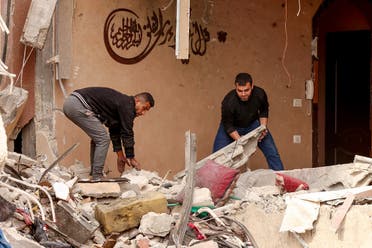
“These are very serious discussions and negotiations, and we hope that they lead somewhere,” White House spokesperson John Kirby told reporters aboard Air Force One on Wednesday. US President Joe Biden said: “We’re pushing.”
Israeli Foreign Minister Eli Cohen confirmed negotiations on a hostage release were ongoing but declined to provide details. He repeated Israel’s position that war would not end while Hamas controls Gaza, and said there was “no talk of reducing the intensity, at least not in the coming weeks.”
Taher Al-Nono, Haniyeh’s media adviser, said: “We cannot talk about negotiations while Israel continues its aggression.”
Looking further ahead, a senior Israeli official told reporters on Thursday that Israel wanted to see a local Palestinian leadership oversee administrative affairs in Gaza after the war but ruled out the Palestinian Authority, which oversees the occupied West Bank.
Hamas officials said an Israeli airstrike at the Rafah crossing to Egypt on Thursday morning killed four people including the Gaza director of another border crossing, Kerem Shalom. Israel’s military appeared to deny involvement, saying it was not familiar with the incident.
Israel allowed Kerem Shalom to open this week, increasing the amount of aid getting into the Strip, though UN agencies say it remains a trickle compared to the vast needs.
The UN Security Council was due to vote on Thursday on a resolution to boost aid after a delay at the request of the United States. The draft would give the UN a wider role overseeing aid shipments, seen as diluting Israel’s control.
Washington said there were concerns that in its current form the resolution “could actually slow down” deliveries.
